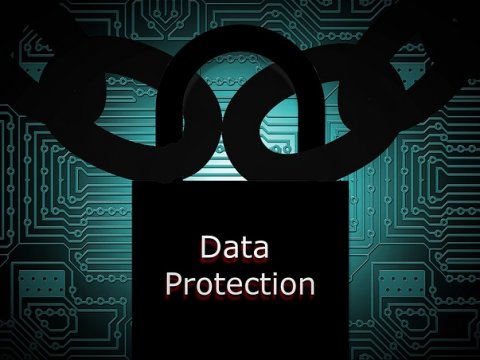Category: Identity Theft
Sen. Moran Introduces Federal Data Privacy Legislation
U.S. Senator and Consumer Protection Subcommittee Chairman, Jerry Moran, has introduced a Consumer Data Privacy and Security Act. The bill seeks to strengthen the laws governing personal data and create regulations and standards for American businesses that gather, process and use consumers’ personal data. The Consumer Data Privacy and Security…
Target Credit Card Breach: Data Stolen for All Sales Between 11/27 and 12/15
A massive Target credit card theft has just been announced. If you made a purchase at Target using a credit card or debit card at any time between November 27 and December 15, it is likely that your credit card number and your name, the card’s expiration date AND the card verification code (CVV) have been stolen.
Make Purchases Through American Express Amex Sync and Look Like a Twitter Spammer at the Same Time!
Twitter is trending with the promoted hashtag #AmexSync. Do you get annoyed with the “deals” that your Facebook friends “like” showing up in your newsfeed? Well prepare for it to get even worse on Twitter, as American Express and Twitter introduce Amex Sync, the service that connects your American Express credit card directly to your Twitter account. And rest assured, as Twitter has proven time and time again, your private information is secure behind their hack-proof system. (Not!)
Hacker Guccifer Hacks Email Accounts of Former President George W. Bush and His Family and Friends
A hacker, who goes by the name “Guccifer”, has hacked the email accounts of former president George W. Bush, as well as the accounts of his family and friends, and has taken to posting his findings online, including private photos, emails and private home addresses. Guccifer told The Smoking Gun, who broke the story, that he isn’t worried about the feds coming after him because they have actually been investigating him for awhile and this latest stunt is “just another chapter in the game.”
Computer Users Urged to Disable Java Because of Security Flaws
The U.S. Department of Homeland Security alerted users of Java to a serious and urgent security risk, recommending that users disable Java until a suitable fix has been released. In the statement, the United States Computer Emergency Readiness Team (US-CERT), the branch of the federal government that manages computer security risks, warned that any system using Oracle Java 7 (1.7, 1.7.0) including Java Platform Standard Edition 7 (Java SE 7), Java SE Development Kit (JDK 7) and Java SE Runtime Environment (JRE 7) are at risk.
The Amazon Replacement Order Scam, and How to Avoid It
If you, like many, have been using Amazon.com for some of your Christmas shopping, then your account may be vulnerable to a scam using your order number that is genius in its execution, and uncovers some of Amazon’s failings in inventory control. It all comes down to the individual order numbers assigned to your orders. Those order numbers are for sale, along with the corresponding email address (as in your email address), and scam artists are using that information to get duplicates of your orders sent to them.
Smart Meters: Are They Eavesdropping On Your Internet Usage?
Are smart meters (or as some call them “smartmeters”) the next great energy saver, or are they a privacy risk for someone hacking your wifi, Internet, or electricity usage data? Maybe both. Some are calling them a great way to save energy and money on our monthly energy bills, some are saying they are a sign that big brother is tightening his grasp, but either way, smart meters are stirring up some serious controversy. From public meetings in Vermont, to gun-toting homeowners chasing utility company workers who are aiming to install smart meters off their property, these tiny little devices have not arrived quietly.
What to Do When You are the Victim of Identity Theft or Credit Card Fraud, Including if it is a Family Member who Steals Your Identity
It’s one of those things that you never think will happen to you. You’re going along in life, hunky-dory, then boom! There are fraudulent charges on your credit card, or an unknown credit card shows up on your credit report, or you get a call from a collection agency demanding payment on an account that you never even knew existed. Unfortunately, credit fraud and identity theft protection are not one of those things that you think about until it is too late. And if the person who stole your identity is a family member, such as your mother, father, sibling or even your own child, you also have an additional set of special circumstances to deal with.
Google Admits it Did Not Erase All of the Personal Data it Promised
Google has found themselves in hot water over privacy issues yet again. As we previously reported, it was discovered that the Google Street View vehicles were collecting data illegally, while taking street pictures in the US, Australia and Europe. In fact, they were doing it for three years, between 2007 and 2010, by harvesting personal data through open wifi routers as the Street View car drove by. This data included entire emails, site visit history, passwords, and other private information that the average citizen probably does not want floating around.
The Top Ten Most Dangerous Places to Give Out Your Social Security Number
A few weeks ago Internet security outfit McAfee analyzed data published by several sources, and put together a list of the ten most dangerous places for you to give out your social security number. By which we mean, the top 10 places that legitimately ask for your social security number, and to which you would be inclined to provide your SSN. These include banks, hospitals, and your own local government.
A Look Inside an Identity Theft Website Shut Down by Federal Prosecutors
Ever wonder just how identity theft and financial fraud happens? CallService.biz was a site that served as a front for thousands of bad guys to take advantage of identity theft, and use stolen financial information such as bank account and credit card numbers. Run by Dmitry Naskovets, from the Czech Republic, and Sergey Semashko, from Belarus, CallService.biz was open about what it did – providing identity theft and financial information theft criminals with service representatives who would call the financial institutions at which the compromised financial accounts were based, and pretend to be the account holders – in your choice of English or German – and would confirm the financial transactions being made by the crooks.
Worst Problem on the Internet is Stupid Users, Survey Says
Stupid users are the worst problem on the Internet, according to this survey of more than 600 Internet users.
New Paypal Scam Asks for Passport, Drivers License and Credit Card
A new scam going around the internet, originating from “security@paypalfraudcheck.com”, tells Paypal users that their account has been limited, and to remove the limit, they must scan and email a copy of their passport or driver’s license, a copy of their Paypal credit or debit card, and a copy of a recent utility bill.
40 Million U.S. Credit Card and Debit Card Numbers Stolen by War Driving Identity Theft Ring
In what is being called the “largest hacking and identity theft case” ever, eleven men have been indicted for allegedly stealing the numbers of more than 40 million U.S. credit cards and debit cards. Let me repeat that: 40 million. The entire population of the United States is only 301 million! That means that for every seven or eight people you see, the odds are good that one of them had their credit card number stolen, and their account drained.
Scam Identity Theft Calls to Cell Phones Tout Expiring Auto Warranty, Coming from 408-587-2116 and 623-238-6228
People across the country are reporting telephone calls coming from the numbers (623) 238-6228 and (408) 587-2116. These calls claim that your car warranty is expiring, but they are really scam artists trying to steal your personal information and identity. So if the number appearing on your cellphone screen is either (623) 238-6228 or (408) 587-2116, don’t answer it! Other numbers generating these spam identity theft calls include (202) 552-1332, (702) 520-1105, (609) 948-0971 and (562) 289-8136.





